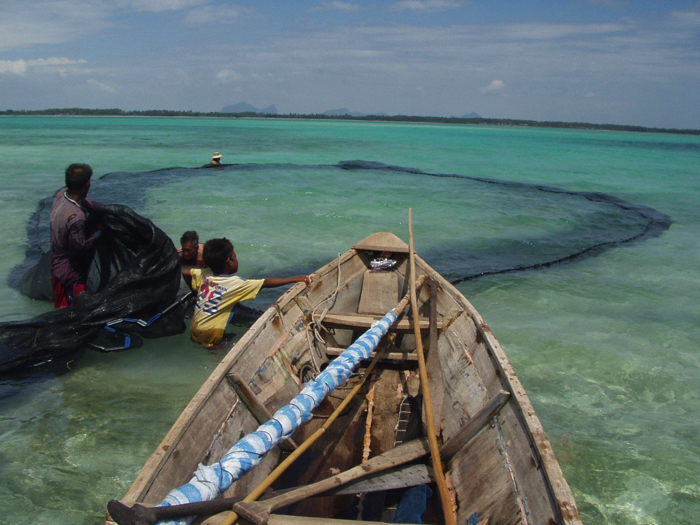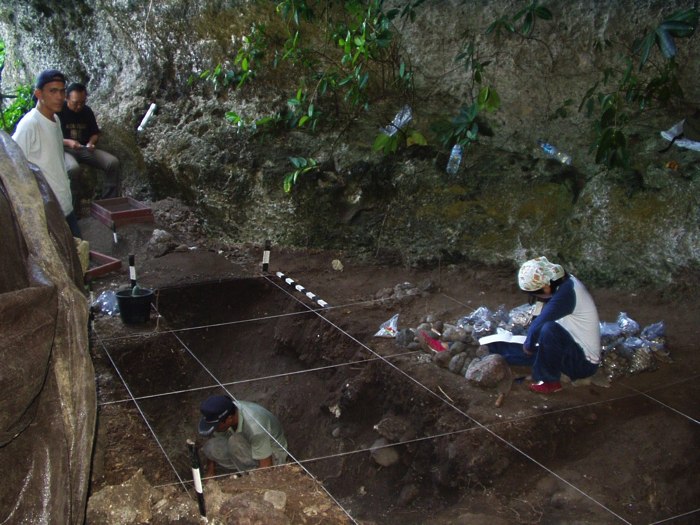- Project Leader : Ono Rintaro (School of Marine Science and Technology, Tokai University)
Outline of Research
This publication (in Japanese) investigates the history of marine exploitation and the development of subsistence strategies in the Celebes Sea as one of the maritime worlds that exist in Insular Southeast Asia. The Celebes Sea is a conceptual zone based on a historical and ecological background which includes Borneo Island in Malaysia, Mindanao Island in Philippines, and Sulawesi Island in Indonesia, together with two small islands groups as Sulu Islands in Philippines and Sangihe-Talaud Islands in Indonesia. The temporal framework of this publication covers a period from the late Pleistocene to Holocene until present times, but mainly focuses after Neolithic times corresponding to the history of the Austronesian speaking people who are currently the major population stretching across Insular Southeast Asia and Oceania.
Description
The purposes of this publication are; (1) to innovate methodology for Area Studies by employing an ethno-archaeological and ethnohistorical approach in Insular Southeast Asia, (2) to provide solid and basic data of prehistoric and historic marine exploitation and subsistence strategies based on intensive excavations and analysis of faunal remains, (3) to investigate modern marine exploitation and subsistence strategies of some groups including Sama (Bajau) in the Celebes Sea based on intensive ethnological surveys, and (4) to provide ecological and historical models of past to present subsistence strategies in the Celebes Sea by combining archaeological, historical, and ethnological data in Insular Southeast Asia and also Oceania.
With these purposes in mind, the publication makes clear that the intensive use of inshore resources has been a major character of fishing and subsistence strategies from prehistoric to present times in the Celebes Sea, saving more labour time for exploiting terrestrial and agricultural resources which have been more unstable than marine resources. The intensive use of inshore resources has been also observed after trading and colonial times to the present as in the case of Sama fishing. However, the main factor of such inshore exploitation in later times is tightly related to the importance and high value of inshore resources as commercial goods connected with Chinese trading, and there have been drastic structural changes in subsistence strategies between early (Neolithic) times and later times.
Besides these results, the significance of this publication is; (1) its attempt to combine Southeast Asian studies and Pacific studies as Area Studies of the maritime world with a long-time perspective of human history, and (2) its attempt to employ an ethno-archaeological approach for Area Studies in Insular Southeast Asia.
 Fishing in coral reefs by Sama people (Eastern Coast of Borneo Island) |
 Archaeological excavation in Talaud Islands (Indonesia) |
